
As pricing tightens and supply pressures grow in major metros, secondary and tertiary self-storage markets are re-emerging as strategic opportunities for disciplined investors seeking stronger spreads, manageable development risk, and less institutional competition.
Read More
January is over, tax deadlines are approaching, and this is the narrow window when self-storage owners can still plan—rather than panic—by reviewing strategies that protect cash flow and future value before April 15.
Read More
A no-sales Lunch & Learn where storage owners and investors hear directly from appraisers, lenders, and buyers on how self-storage deals are being evaluated today—from NOI to exit—plus lunch and open Q&A with industry experts.
Read More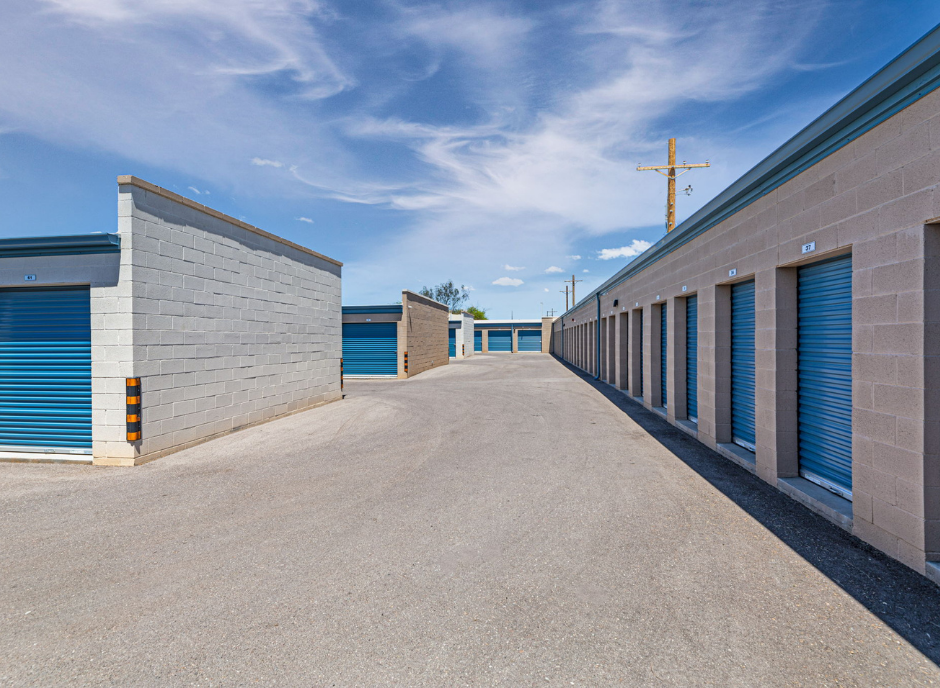
2025 challenged self-storage owners, but through market resets and operational pressure, ARGUS leveraged decades of experience and national resources to help clients reposition assets and successfully close over $500 million in transactions—proving strong advisory wins in any market cycle.
Read More
The Gorden Group successfully closed the sale of London Bridge Mini Storage in Lake Havasu City, achieving a rapid pre-market transaction with multiple offers and top-dollar pricing driven by strong occupancy, clear value-add potential, and durable lifestyle-market demand.
Read More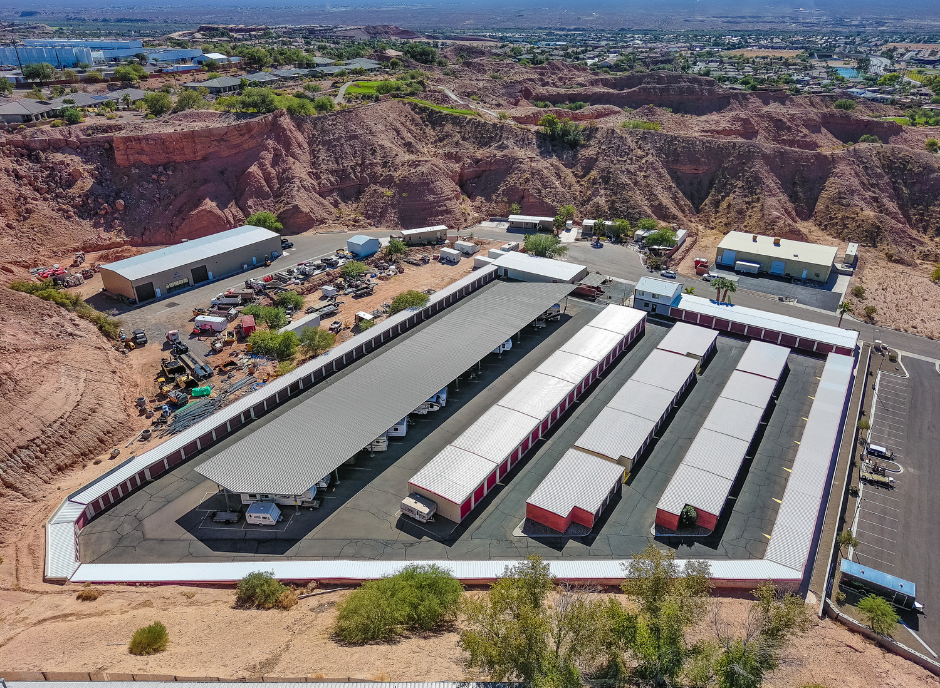
2025 marked a return to a healthier, more disciplined self-storage investment market across Arizona, Nevada, and Utah—where realistic pricing, aligned expectations, and strong execution drove renewed transaction momentum.
Read More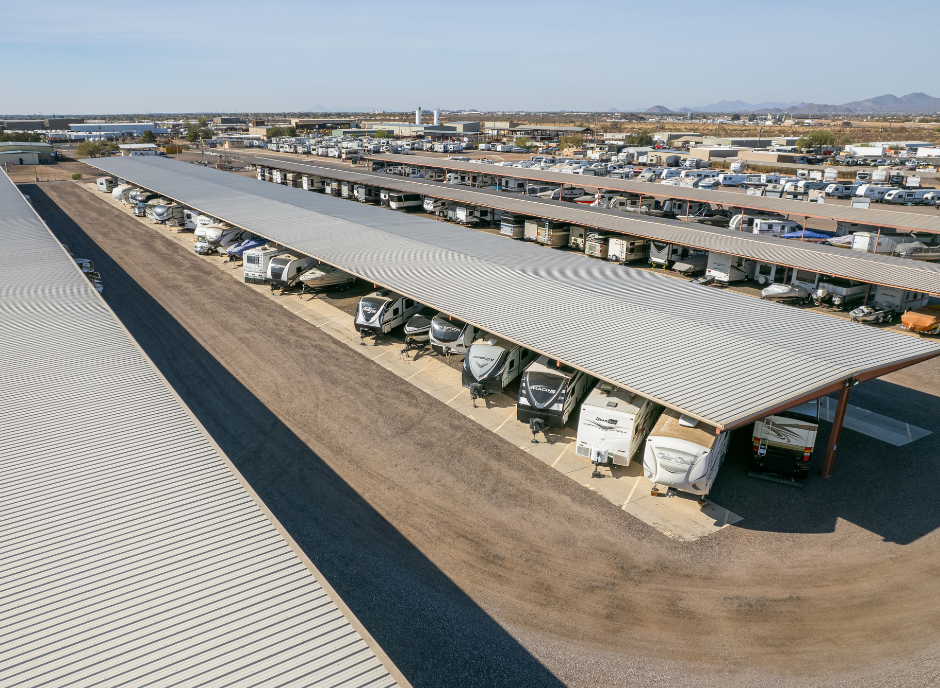
The Gorden Group goes beyond self storage, helping investors buy, sell, and diversify across niche asset classes with brokers who invest themselves
Read More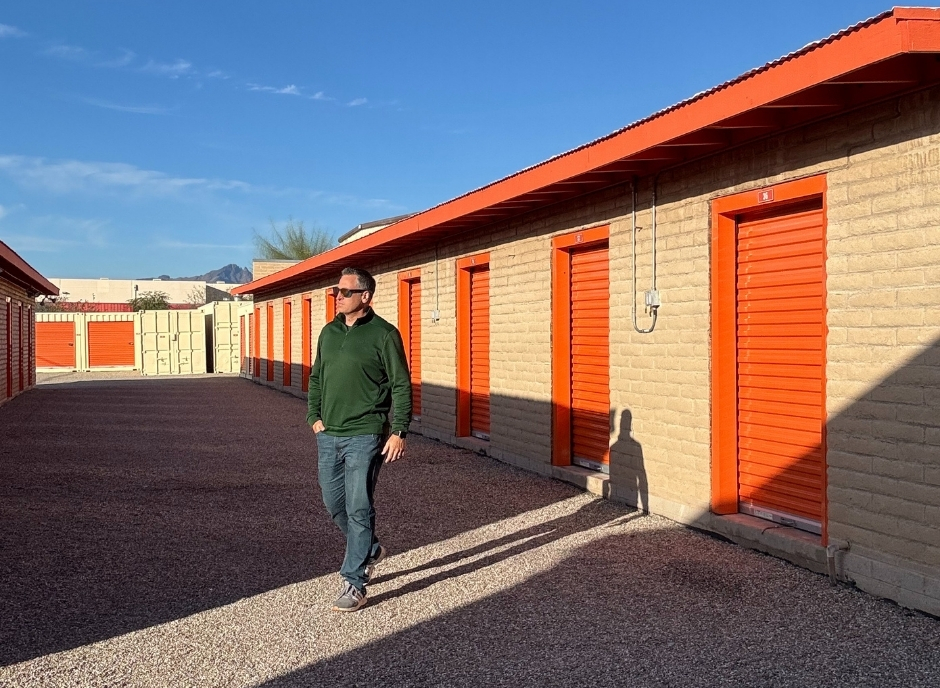
Listing a prepared property at the start of the new year puts owners in front of fresh budgets, motivated buyers, and maximum momentum—setting them up to win whether they’re selling, buying, or planning their next move.
Read More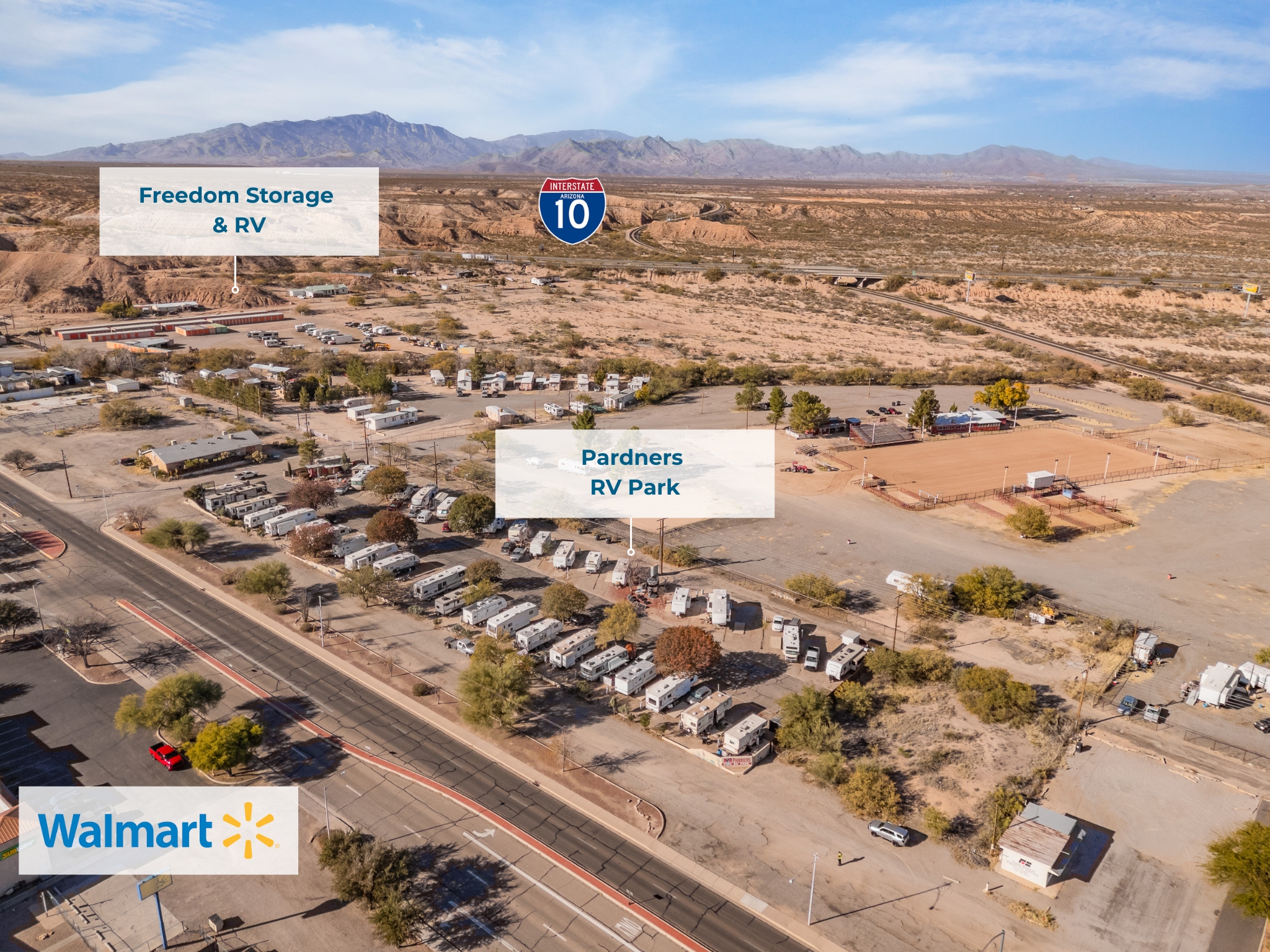
A rare Benson, AZ portfolio opportunity combining an RV park and storage asset in close proximity, offering diversified income, operational efficiency, and a smart fit for owner-operators or investors seeking simple, scalable management.
Read More
The sale of Surprise Mini Storage highlights continued investor demand for well-located, income-producing self-storage assets in high-growth Arizona markets.
Read More
The Q3 State of the Market Report breaks down how shifting interest rates, evolving sales activity, rent trends, and new supply are reshaping the self-storage landscape—and shows owners the insights they need to make smarter moves heading into Q4.
Read More.png)
Jeff Gorden’s time at Strategic Coach highlighted how fear can fuel focus, resilience, and action for business growth.
Read More.png)
Discover five of the Southwest’s strongest CRE opportunities—from hospitality to storage and RV assets—each offering high demand, solid performance, and powerful upside for investors ready to move now.
Read More.png)
We’re celebrating this season with gratitude for our clients, partners, team, and the communities that make The Gorden Group’s work meaningful all year long.
Read More.png)
The Gorden Group, long recognized for its leadership in Self Storage, is expanding its proven processes into niche asset classes—powered by a rising team of homegrown MHP advisors dedicated to helping owners maximize value and build lasting legacies.
Read More.png)
This data-driven report helps investors, developers, and operators make smarter decisions by understanding where and when new self storage facilities are being built.
Read More.png)
Don’t let your fall renters vanish after Halloween—keep them coming back with smart remarketing, loyalty perks, and winter storage upsells that turn one-time guests into year-round customers.
Read More
Discover the overlooked levers—like occupancy balance, rate strategy, and expense efficiency—that quietly drive your facility’s true market value and turn everyday operations into lasting equity.
Read More
Your numbers tell the story buyers care about most. Learn why clean financials can do more to sell your facility than any photo, ad, or upgrade ever could.
Read More
At The Gorden Group, we protect sellers through a disciplined, confidential, and strategic sales process designed to attract the right buyers and maximize results. From phased marketing to qualified vetting and expert negotiation, every step is built to safeguard our clients’ interests and strengthen their position in the market.
Read More
Fall is the time for storage owners to prep facilities, protect assets, and capture seasonal demand. With smart maintenance and targeted marketing, operators can prevent costly issues and finish Q4 strong.
Read More
Self-storage operators who strategically target small businesses, e-commerce sellers, and service providers can unlock steadier occupancy, longer leases, and a powerful new revenue stream.
Read More
The Fed’s September 17, 2025, 25 basis point rate cut lowers borrowing costs and signals fresh opportunities for facility owners in self-storage, RV & boat storage, mobile home parks, and campgrounds.
Read More
The Gorden Group Self Storage team joined the SSA 2025 Fall Conference & Tradeshow, celebrating 50 years with industry peers. View more for highlights on the trip.
Read More
Now on the market: Surprise Mini Storage — a 122,588 SF, 814-unit, fully climate-controlled facility in one of Arizona’s fastest-growing cities, offering strong occupancy, ancillary income, and clear value-add potential.
Read More
We’re excited to welcome our new Sales Interns starting next week at The Gorden Group! If you’re looking to gain hands-on experience in commercial real estate, we’re also recruiting for our next round of interns.
Read More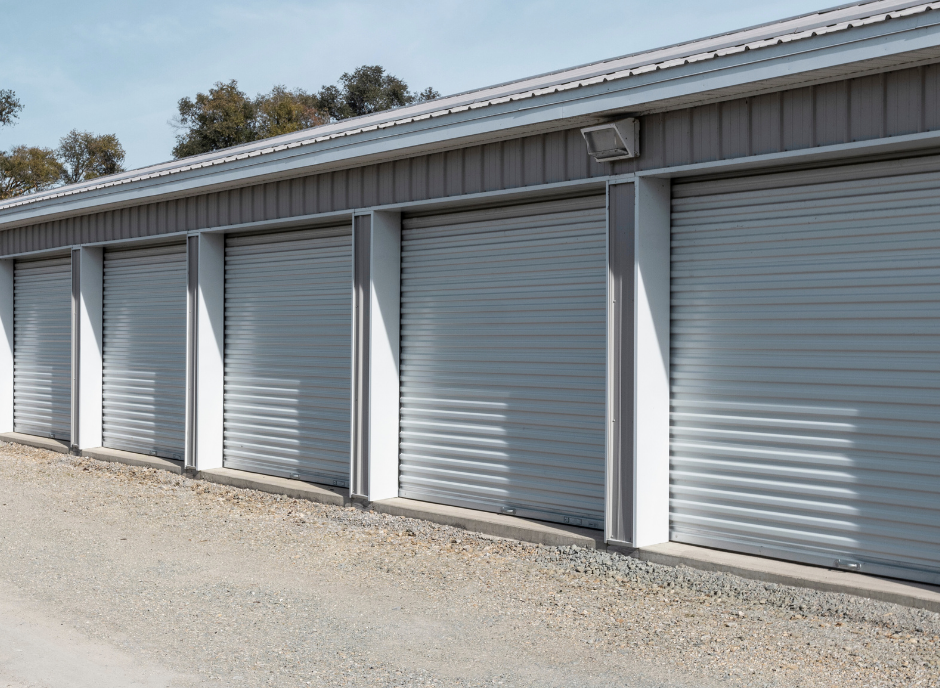
Summer heat and lithium battery risks make fire prevention a must for self-storage owners. This blog outlines practical safety tips and includes a downloadable checklist to help protect your facility, tenants, and reputation during fire season.
Read More
The Gorden Group successfully closed the sale of Arizona Covered RV & Boat Storage in Apache Junction, AZ. Represented by Jeff Gorden, the deal drew 12+ offers, closed in 45 days, and delivered strong value and peace of mind for the sellers through smart marketing and full market exposure.
Read More
Stop leaving money on the table. From truck rentals to pop-up vendors and solar leasing, your facility’s underused spaces can become powerful income generators. This article explores 7 creative, practical ideas to help self-storage owners unlock hidden revenue—without adding new buildings.
Read More
The Gorden Group successfully closed the sale of the Mesquite Self Storage Portfolio in Mesquite, Nevada. The portfolio included three institutional-quality properties managed by Extra Space Storage, strategically located along Interstate 15. Learn how the Gorden Team attracted multiple national offers and achieved a premium market price.
Read More
This article shares fun, easy-to-launch ideas to boost community engagement—from hosting food drives and raffles to partnering with local businesses and celebrating your tenants. Whether you’re aiming to give back or stand out, these tips will help you turn your facility into a neighborhood favorite.
Read More
AI, marketing shifts, and evolving customer behavior are reshaping self-storage. Our latest recap from the 2025 Mountain West Conference highlights what owners in Arizona, Utah, and Nevada need to know—and how to stay ahead.
Read More
Summer is the busiest (and most profitable) season for self-storage—and the rush is on! From college students and military families to snowbirds and relocating renters, this blog breaks down how to attract and serve each type of seasonal customer with tailored solutions like flexible leases, prepaid plans, and strategic partnerships. Get ready to fill your units fast and turn summer demand into lasting revenue.
Read More.png)
As energy costs continue to rise, self-storage facility owners are seeking ways to reduce expenses while adopting sustainable practices. Incorporating energy-efficient strategies not only lowers utility bills but also enhances your facility’s appeal to environmentally conscious customers. Here are actionable sustainability tips to help self-storage facility owners cut energy costs and operate more efficiently.
Read More.png)
In the self-storage industry, customer retention is as critical as attracting new tenants. Converting one-time renters into long-term customers not only stabilizes your occupancy rates but also maximizes revenue and reduces marketing expenses. The key lies in building strong relationships, offering value-added services, and staying engaged with your customers. Here’s how self-storage facility owners can transform short-term renters into loyal, long-term clients.
Read More.png)
January often feels like a fresh start—a time to reset goals, build momentum, and connect with new opportunities. For self-storage facility owners, the beginning of the year provides a unique chance to strengthen ties within the community and attract new customers. By focusing on community engagement, you can build goodwill, enhance your reputation, and increase occupancy during what is typically a slower season.
Read More.png)
The New Year is a time for fresh starts, and as a self-storage facility owner, it’s the perfect opportunity to set your business up for success in the coming year. Whether it’s planning for future growth, streamlining operations, or engaging with your tenants, taking proactive steps now can make 2024 your best year yet.
Read More.png)
The holiday season often brings changes to your facility’s operating hours, as well as increased activity from tenants. Clear and proactive communication is essential to ensure that your tenants are informed and your team is prepared. Managing this effectively can help reduce confusion, minimize frustrations, and create a positive experience for tenants during one of the busiest times of the year. Here’s how to keep everyone on the same page during the holidays.
Read More.png)
The holiday season is a time of increased activity for self-storage facilities. From tenants retrieving decorations to storing gifts or making room for guests, your facility may see higher-than-usual traffic. To keep things running smoothly, it's essential to have the right staffing strategy in place. A well-prepared team ensures seamless operations and provides tenants with the excellent service they expect during this busy time.
Read More.png)
The holiday season brings a unique set of challenges and opportunities for self-storage operators. Whether tenants are retrieving decorations, hiding gifts, or making space for holiday gatherings, your facility may see an uptick in activity. Preparing ahead of time will help you manage the increased traffic, maintain security, and provide excellent service to your tenants. Here’s how to get your facility holiday-ready.
Read More.png)
The self-storage industry is known for its resilience, but even this sector is not immune to market fluctuations. As we move into 2025, self-storage facility owners face a challenging landscape characterized by declining move-in rents, high mortgage rates, and softened demand due to a sluggish housing market. However, there are signs that the market may rebound in the coming years, with growth opportunities on the horizon. In this blog, we’ll explore how self-storage owners can prepare for the next market upswing, positioning their businesses for success in 2025 and beyond.
Read More.png)
As we look ahead to 2025, self-storage facility owners are navigating a complex market landscape. With demand expected to soften due to slowing home sales and rising mortgage rates, many are reconsidering their growth strategies. However, there’s a silver lining on the horizon: declining construction costs. This shift presents a unique opportunity for facility owners to expand their footprint, even in a challenging economic climate. In this blog, we’ll explore how self-storage operators can leverage declining construction costs to enhance their competitive edge and position themselves for future growth.
Read More.png)
The self-storage industry is rapidly evolving, driven by advancements in technology, changing consumer preferences, and a growing focus on sustainability. To stay competitive, facility owners must adapt to these trends to attract tenants, boost occupancy rates, and increase property value. Whether you're looking to enhance your current operations or considering an expansion, here are the top five self-storage trends to watch in 2025.
Read More.png)
As a self-storage facility owner, understanding cap rates and how they influence property valuations is crucial when buying, selling, or refinancing your assets. In this blog post, the Gorden Group will explore the concept of cap rates, their role in self-storage sales, and how you can leverage this knowledge to make informed decisions.
Read More.png)
With the growing demand for self-storage solutions, many facility owners are considering expansion as a way to boost revenue and enhance property value. But is expanding an existing self-storage facility always the right move? In this post, we’ll walk through the pros and cons, key considerations, and tips for evaluating whether an expansion could be a valuable investment.
Read More.png)
The self-storage market is experiencing a wave of optimism as recent interest rate decreases breathe new life into the sector. After a period of economic uncertainty and rising rates, the industry is poised for potential growth and renewed investor interest.
Read More.png)
As a self-storage facility owner in Arizona, dealing with defaulting tenants is an unfortunate but necessary part of the business. Knowing how to handle these situations legally and efficiently is crucial to protecting your business interests. This guide will walk you through the proper steps to take when faced with a defaulting tenant, based on Arizona's self-storage statutes.
Read More.png)
The self-storage industry experiences seasonal fluctuations in demand, with busy periods typically aligning with the warmer months when people are moving, renovating, or decluttering. While high-demand seasons bring increased revenue, it’s essential to know how to prepare for these times and optimize your operations during off-peak months. In this blog, we’ll discuss the factors behind seasonal demand and share strategies to help self-storage facility owners make the most of both high and low seasons.
Read More.png)
In the world of real estate, location is often considered the most critical factor in determining a property's value—and self-storage is no exception. While factors like occupancy rates, facility size, and amenities are important, the location of a self-storage facility can make or break its profitability. In this blog, we’ll explore what makes the right location so essential and how it impacts the long-term success of a self-storage property.
Read More.png)
Owning a self-storage facility can be a rewarding investment, but it also comes with a unique set of maintenance responsibilities. Proper upkeep is crucial not only for protecting your investment but also for ensuring customer satisfaction and safety. This blog outlines essential maintenance practices every self-storage owner should know to keep their facilities running smoothly.
Read More.png)
Owning a self-storage property can be a lucrative investment, but there may come a time when selling makes more sense than holding onto it. Whether you’ve been in the business for years or are relatively new, deciding when to sell your self-storage property requires a combination of market insight, financial planning, and personal goals.
Read More.png)
In the self-storage industry, first impressions are everything. The moment potential tenants arrive at your facility, they begin forming opinions about the quality and security of the space. This makes curb appeal—the visual attractiveness of your property from the outside—a critical factor in attracting new tenants and ensuring they feel confident choosing your facility. In this post, we’ll explore the importance of curb appeal and share actionable strategies to help you maintain a clean, professional, and inviting property.
Read More.png)
In the self-storage industry, providing excellent customer service is key to maintaining tenant satisfaction and reducing turnover. Happy tenants are more likely to stay longer, recommend your facility to others, and leave positive reviews—helping to build your reputation and grow your business. In this blog post, we'll explore some customer service best practices that can help you keep your tenants happy and ensure they feel valued and cared for throughout their time with your facility.
Read More.png)
The self-storage industry has been experiencing dynamic changes in recent years, influenced by various factors such as technological advancements, economic shifts, and evolving customer expectations. As a self-storage operator, staying competitive means not only understanding these market trends but also adapting your strategies accordingly. In this blog post, we’ll explore some of the key trends shaping the self-storage industry today and provide actionable insights on how to stay ahead of the curve.
Read More.png)
When it comes to operating a successful self-storage facility, security is one of the most critical aspects to consider. Not only does strong security protect your tenants' belongings, but it also enhances the reputation of your facility, making it more attractive to potential customers. In a market where trust is a key factor for tenants, implementing top-notch security measures can be the difference between a fully-occupied facility and one that struggles to maintain tenants.
Read More.png)
As a self storage property owner or investor, understanding and navigating zoning and regulatory issues is crucial for your business's success and compliance. This guide will walk you through key considerations and strategies to effectively manage these challenges.
Read More.png)
Understanding seasonal trends is crucial in the self-storage industry, especially in the Southwest U.S., where the snowbird population significantly impacts demand. This blog explores these trends and offers strategies to maximize occupancy and revenue.
Read More.png)
In the competitive self storage industry, particularly in the bustling markets of Arizona, Nevada, and Utah, maintaining high occupancy rates is crucial for profitability. The unique characteristics of these Southwestern states present both opportunities and challenges for self storage facility owners. This blog post will delve into effective strategies to help you maximize occupancy in your self storage facility, ensuring your business thrives in these dynamic markets.
Read More.png)
In the competitive self storage industry, particularly in the bustling markets of Arizona, Nevada, and Utah, maintaining high occupancy rates is crucial for profitability. The unique characteristics of these Southwestern states present both opportunities and challenges for self storage facility owners. This blog post will delve into effective strategies to help you maximize occupancy in your self storage facility, ensuring your business thrives in these dynamic markets.
Read More.png)
In the competitive self storage industry, particularly in the bustling markets of Arizona, Nevada, and Utah, maintaining high occupancy rates is crucial for profitability. The unique characteristics of these Southwestern states present both opportunities and challenges for self storage facility owners. This blog post will delve into effective strategies to help you maximize occupancy in your self storage facility, ensuring your business thrives in these dynamic markets.
Read More
Donnie Dodson of Keller Williams East Valley has arranged the sale of Rim260 Storage In Star Valley, Arizona. The self-storage facility sold March 6, 2024, for $1,200,000. The property spans 1.37 acres, 20,709 rentable sf and provides 44 spaces of self-storage and 39 RV parking spaces. Donnie Dodson represented the Seller.
Read More
Jeff Gorden of The Gorden Companies/Keller Williams East Valley has arranged the sale of Valley Mini Storage in Phoenix, Arizona. The self-storage facility sold December 6, 2023 for $11,100,000. The property spans 1.14 acres, 61,300 rentable sf and provides 770 spaces of self-storage. Jeff Gorden represented the Seller.
Read More
Jeff Gorden of Keller Williams Commercial has arranged the sale of Ourspace Storage in Wellton, AZ. The self-storage facility sold November 17th, 2023 for $1,045,000. The property spans 11,150 in existing RSF and provides 165 existing spaces of self-storage. Jeff Gorden represented the Seller of the storage.
Read More
Jeff Gorden of Keller Williams Commercial has arranged the sale of GuardAll Self Storage in Kingman, AZ. The self-storage facility sold September 18, 2023 for $6,500,000.The property spans 1.3 acres and provides 409 spaces of self-storage. Jeff Gorden represented the Seller.
Read More
Jeff Gorden of Eagle Commercial Realty Services has arranged the sale of F&R Grand Avenue Mini Storage in Peoria, Arizona. The self-storage facility sold February 20, 2018 for $2,140,000. The property spans just over one acre and provides 338 units of self storage. Eagle Commercial represented the California based Seller. An international self storage investment group won the deal.
Read More
Jeff Gorden of Eagle Commercial Realty Services has arranged the sale of Concho Mini Storage in Concho, Arizona. The self-storage facility sold January 5, 2018 for $225,000. The property spans two acres and provides 117 units of self-storage. Eagle Commercial and represented the Seller. An Arizona based buyer presented the winning offer.
Read More
Eagle Commercial Realty Services is pleased to announce the sale of American Mini Storage in Sierra Vista, Arizona. The self-storage facility sold December 19, 2017 for $5,450,000. The property spans just over six acres and provides 846 units of self-storage and over 100 spaces for vehicle storage.
Read More
Jeff Gorden sets a new sale price record with the sale of Eagle Canyon Storage in Phoenix, Arizona. The self-storage facility, formerly known as Camelback Self Storage, sold December 18, 2017 for $17,500,000 which becomes the new high watermark for a single self-storage property in Arizona.
Read More
The owner of this two property mini storage portfolio contacted with us in the fourth quarter of 2016. He was the original developer of the properties from the mid-80’s and was beginning to consider retirement. For years, his properties had produced consistently high levels of occupancy and cash flow, but there were yet challenges that this portfolio presented. First, the size of the market was not great enough to attract large groups, while at the same time the size and valuation of the portfolio was beyond the means of most local operators. Second, the management records used at the facilities were a tried and true, yet antiquated, paper ledger system. This made delivery of historical records, specifically occupancy and month-by-month analysis, a challenge and gave reason for extra scrutiny by potential buyers and lenders.
Read More
The Seller of this institutionally sized self storage facility was the original developer and operator of the property from its initial development seventeen years ago through several phased expansions. We had been providing advisory and market intelligence to this property owner for several years. When conversations turned to those of retirement, we were the logical choice. No other broker had successfully sold similar property in this market for over a decade. The performance of the facility had been strong in the past and performance trends were positive, but we knew that selling this property could be a challenge. While larger operators may pass over this market due to size and population, smaller operators may pass over the property due to the size and price. It was truly a Goldilocks’ assignment.
Read More
The owner of this small market self storage facility contacted us in in the third quarter of 2016. They were interested in retiring, and after hearing about our national marketing platform and pricing strategy, we won the assignment. Knowing that occupancy and cash flow had been consistently strong over the past year, we immediately began working on a strategy to attract buyers to a town of less than 2000 people.
Read More
Our client developed this property in 2006 and had been operating it until the time of the sale. This self storage was an ancillary business for them and its performance was not being maximized. This led to cash flows that were lower than market average and presented a significant challenge in selling the property at the desired price. In fact, this particular facility had been listed a number of times in the past with no success.
Read More%20(2).jpeg)
When we were contacted, the owner of this ten acre RV & boat storage facility had already received a number of inquiries and unsolicited offers. A familiar situation to us, the seller asked our team for a valuation opinion for the property and if one of our clients could be an interested buyer.
Read MoreOur client purchased this property as an investment in the early 2000’s and had planned to construct a self storage facility via joint venture with a local developer. Necessary entitlement approvals were obtained; however, just as they were preparing for construction, the economy faltered and with it the plans for construction. The client held the land during the following years, keeping in touch with our team for advisory on the best time to revive the project.
Read More
This client had recently begun a process of transition into other other investments markets and, in order to continue this transition, they contacted us about selling this asset. We immediately conducted an analysis of his facility and his competitors and found one big challenge in taking this property to market: his current unit mix included a section that presented a chronic leasing challenge.
Read More
The seller of this storage sought out the expertise of our team to help them sell their property within a limited time frame. Our client had a loan maturity coming due and did not wish to refinance as this facility was no longer one of his core assets. The storage had deferred maintenance, the management systems were not computerized, and it was located on a main industrial road with a low household count.
Read More
Our client in this self storage sale had delegated the day-to-day management of this asset for many years when outside factors caused him to assume the management responsibility. After some review, the owner decided that market conditions indicated a higher return could be made through a sale vs. taking up to a year to complete a performance reposition. At this point the owner sought out our services. The property consisted of self storage buildings surrounded by a large area for boat & RV storage. It was this configuration that eliminated many institutional buyers from the buyer pool and we knew we would need to identify a special kind of buyer who was willing to venture outside of traditional self storage criteria.
Read More
Our client was a repeat customer who had been involved in deals that our team had bought and sold before. The client was interested in liquidating the asset and redeploying capital into other projects. The facility was located in a tertiary market and was not visible from the main highway running through the town. The largest regional bank was also uninterested in lending on the asset, meaning that a potential buyer would have to find financing through another venue.
Read More
The sale went through in time for our client to meet their 45 and 180 day windows on the 1031 exchange. Harnessing our expertise in the Arizona market, we were able to familiarize our client with the locale and by the end of the exchange. They had learned a significant amount about the Arizona real estate market. They were ultimately very satisfied with the property they acquired.
Read MoreSelf storage is a unique asset type that requires expert knowledge to properly represent in a sale. This particular property was located in a smaller community and was self-managed by the sellers who wanted to retire and do more traveling. Since the sellers desired a clean break from the property, we needed to have solutions available to the prospective buyer for the management and financing of the property. By anticipating and solving for these challenges, we knew we could expand the prospective buyer pool to outside of the local market and get a higher sale price for our client.
Read More
Self storage is a unique asset type that can operate successfully in many of different types of markets such as this one which was located in a smaller community and was owner-operated. Our client was looking to retire and so we needed a way for a buyer to step right in and take over the business without interruption.
Read More
Our clients were regional investors, owning multiple asset types across the Southwest and specializing in distressed assets and repositioning. They had acquired the storage at a trustee’s sale 9 months prior to seeking out our services to help them maximize exit value of the property so that they could redeploy capital into another asset. The facility was located at a less-than-ideal location (at the end of a cul-de-sac) and was not visible from the main road.
Read More
This self storage was constructed thirty years prior to our team listing the property and featured a car wash on one of the corners of the property. Over the years, many of the original partners passed away leaving the managing partner (our client) with heirs as his partners. The management of this new group of investors became a driving factor behind a vote to sell the property. The property was located in Yuma, which could be described as a secondary market of Arizona but a tertiary market by national standards. Though there were solid underlying economic drivers, we had handled properties like this before and knew the routine: sell the market first and the property second.
Read More
Our client sought out the expertise of our team to help them sell their mixed-use self storage and business park. The business park was not considered a core asset in their portfolio and they were looking to redeploy capital into an asset closer to their home. The facility was in an older section of the city of Tucson, and due to its mixed-use it did not fit the criteria of many typical self storage investors.
Read More
This asset was originally a health club that was converted into a two story, climate controlled self storage in 2008. The owner acquired it in a REO sale, and had possessed it for a few years while completing a number of capital projects. It was not considered a core asset in their portfolio and they were interested in receiving the highest return on investment and deploying capital into another asset. The owner was receiving unsolicited offers, but did not believe those offers represented the true asset value. Due to our team’s prevalence in the asset type, the owner sought out our expertise to represent them in a sale.
Read More
This client sought the real estate investment expertise of our team to help acquire an income property leased to a creditworthy tenant on at least a five year lease. The client had specific price and geographic requirements and wanted an asset with both minimal management and maintenance involvement. These requirements limited the pool of properties our team could search within.
Read More
Our client approached us to discuss a possible sale of their self storage property. The client owned two self storage facilities, and did not consider this storage facility as a core asset in their portfolio. They had also bought at the peak of the previous business cycle and the location was too far from their homes for them to manage properly. This tasked our team with the challenge of selling the property based on both performance and the price our clients needed.
Read More
This property was being sold by a bank acting as a fiduciary for a trust who needed the property sold. The property had a payday loan business as a tenant and the tenant’s business model was about to undergo state wide re-regulation. With these challenges, the bank sought out the real estate investments knowledge of our team to sell the asset for them.
Read More.jpeg)
Our team tracks all self storage sales in Arizona and got in contact with our client when this storage sold. After getting in touch with them, it was disclosed that they had originally sold the facility a decade earlier, and defaulted on the buyer that they carried paper for. Our client had originally built the property but with the time lapse, living out of state, and deferred maintenance they did not wish to own it again.
Read More
The client owned a multi-tenant retail center in the urban core of the City of Glendale in Arizona. Similar to many properties in the area it featured a mix of small, regional, and single location retail tenants. Our client was from out of state and had improved the asset significantly since purchasing it. Having finished repositioning the asset, our client was looking to make their return and redeploy the capital into another growth opportunity.
Read More
This self storage and RV storage property was located in a tertiary market, just outside of the Phoenix Metropolitan area situated on three different parcels, separated by a T-intersection. Our client was the original owner/ developer and had built each phase at different times using different building methods, the oldest of which, was functionally obsolete. The client sought out the expertise of our self storage team to help them capture the highest exit value possible.
Read More
Our Client was a fiduciary representing a private institution that had received a property through devise. Our client owned the building, and leasehold estate, but did not have room for the asset in its portfolio. The land is owned by the City of Gilbert, in a long term lease and had rent escalations on it, while the tenant in the building had de-escalations on its rent. In addition to these less than desirable characteristics, the property was also being sold in the middle of the recession and was slightly older than most investors would have liked.
Read More
We were approached by our client who was looking to sell their self storage facility. Their note had matured and the bank was threatening to foreclose on the property if action was not taken immediately. The facility featured about 60,000 sq. ft. of self storage space and about 90,000 sq. ft. of RV storage.
Read More.jpeg)
The Client owned a single-tenant net lease asset, a former service station that was converted to stand alone retail and leased to a regional car insurance provider. Our client was looking to downsize their portfolio and sought the expertise of our team to help them achieve the maximum exit value.
Read More.jpg)
Self-storage owners have been enjoying an increase in value over the last few months and real estate fundamentals continue to improve. What does this mean for today’s self-storage investors and potential sellers? Click below to read Ben Vestal’s take on the current state of the market and what you can do to take advantage of these unique times!
Read More.jpg)
As a result of Federal capital gain tax rates that are 58% higher compared to last year, 1031 exchange activity is up significantly. According to a recent July 2013 article in the Wall Street Journal, High Impact Tax Breaks, 1031 exchange activity has increased by as much as 50%. Many self storage property owners are experiencing price appreciation. The increase in self storage property prices, coupled with higher tax rates, has resulted in property owners facing a big tax bill. Consequently, whether selling a self storage property or contemplating selling another investment property and exchanging into a self storage facility as a replacement property, more investors are considering 1031 exchanges as a strategy to obtain either full or partial tax deferral…
Read More
During Argus’ 19-year history in the self-storage business, the perception about the industry has changed dramatically along with the profile of self-storage investors. Gone are the days when almost all self-storage investors were entrepreneurial, mom and pop investors who looked to benefit from their ability to effectively manage these assets. Today’s investors take a more institutional investment approach. This change in the investor profile has caused the pricing for certain assets to reach historically high levels and many entrepreneurial investors are simply looking elsewhere for compelling opportunities. However, in light of mainstream real estate investors now racing to the self-storage business I believe there are still better opportunities for the entrepreneurial investor today in self-storage than any other real estate asset class…
Read More.jpg)
As the only national brokerage firm that specializes in self-storage properties, Argus is presented with unique market data as it relates to the self-storage investment market around the country. Because of our recent market observations we are compelled to share with you our insight which will allow you to “do what must be done” to reach your investment goals. With more than 19 years of self-storage experience and more than 750 successfully completed self-storage transactions, Argus is the dominant self-storage brokerage firm in the country…
Read More
Spring is upon us and so are new opportunities in the self-storage real estate business. Over the years we have experienced the peaks and valleys of the real estate cycle and it is apparent today that we are certainly on the way up, if not at the top. This has allowed many owners, investors and self-storage professionals to enjoy the benefits of the rising real estate values. However, it has occurred to me that many owners and investors simply don’t understand what value a broker brings to a transaction when they are buying or selling a self-storage property.
Read More
While self-storage owners are enjoying a surge in occupancies, revenues and most importantly, property values, the U.S. economy continues to work through some messy politics while still registering modest growth. In the face of tax increases and the sequester budget cuts, the U.S. GDP is still on pace to grow around 2% in the first quarter of 2013(1).
Read More